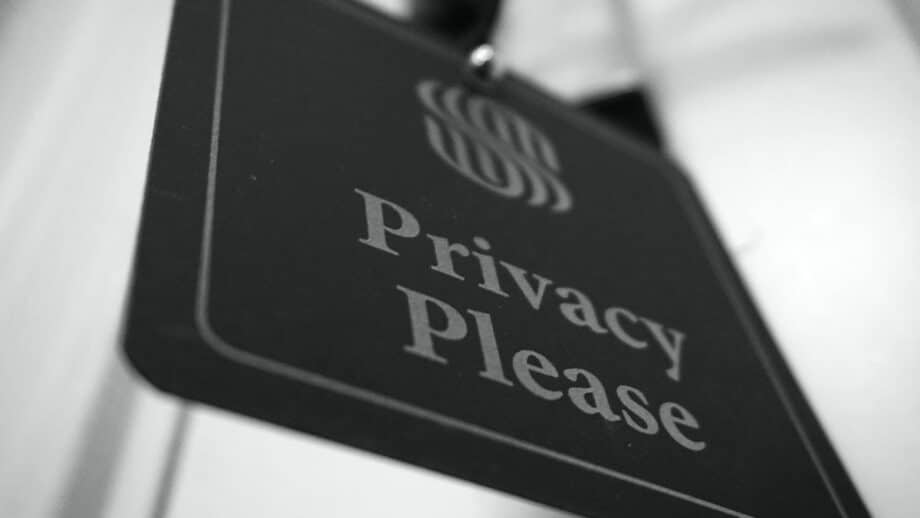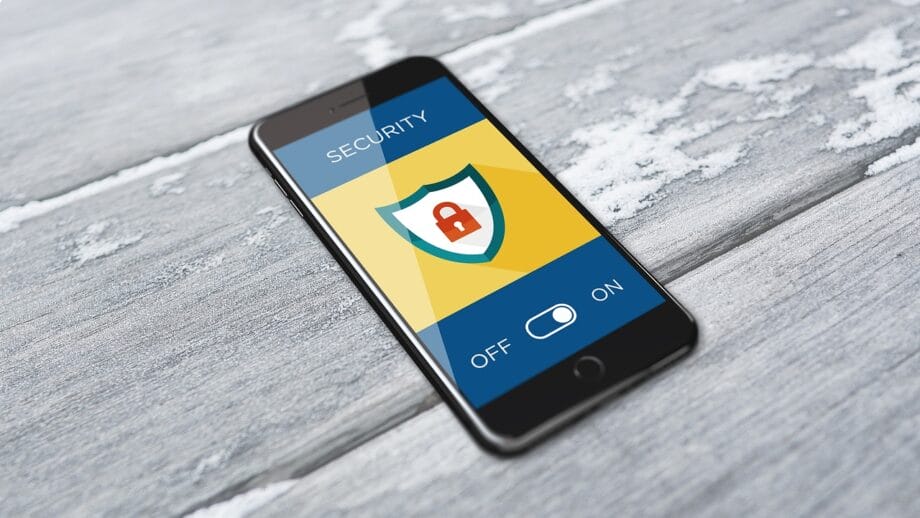The term “digital footprint” gets thrown around a lot in 2023, mostly in the context of embarrassing social media posts. However, a digital footprint goes far beyond that. Everywhere you go and everything you do online leaves a trail of data behind.
This data can include not only basic information like your name, email, phone number, and home address (alarming enough on its own), but also more sensitive details like your health information, political affiliations, sexual orientation, and even social security number. And that’s just the tip of the iceberg.
There are a plethora of reasons why leaving this kind of information exposed online is a bad idea. Unfortunately, figuring this out is the easy part. The hard part is doing something about it. With how interconnected the internet is, removing your personal information can feel like an impossible task. When you break it down step-by-step, however, and understand how your data ends up online, it becomes far more manageable.
How Does Your Personal Information End Up Online?

According to Google’s own transparency report, the number of people requesting the removal of their personal information has gone up steadily and dramatically since 2009. There’s no mistake that more and more people are concerned about their data privacy every year. But how does all our data end up online in the first place?
After all, understanding where the leaks are can help us plug them in before cleaning up the spills. There are three main sources of your personal information on the internet:
Related: Privacy, Security & Health Risks of Social Media! How to Avoid Them?
1. You
You might have been expecting a tech giant like Google to be the number one culprit. But while they certainly have a lot to do with it, you actually have a lot more to do with how much data is out there. This shouldn’t come as a surprise. According to a survey by the American Press Institute, 36% of adults in the US openly admit to oversharing on social media.
So much of the personal information you have exposed on the web is actually information you put there through the websites, apps, and online services you use. This can include your:
- Social media.
- Google account.
- Email accounts.
- Dating sites.
- Personal websites.
- Blogs.
- Apps.
- Online shopping accounts.
- Shopping loyalty programs.
All of these harvests and share your personal information, which you either provide directly or agree to allow to be collected (though fine print and long and complicated privacy policies definitely play a role).
Once you’re aware this is happening, however, you can control how much and what kind of data you share.

2. The Government
Some data you don’t have much control over sharing. This includes information that the government requires and keeps in public databases. This type of information is considered public and can even be useful for you, others around you, and the government. However, that doesn’t mean it can’t also be exploited.
Information the government may keep includes:
- Birth and death records.
- Marriage and divorce records.
- Licensing records.
- Driving records.
- Court records.
- Criminal records.
- Immigration records.
In most cases, you won’t be able to remove this kind of information. But you can try contacting your county clerk’s office to request the removal of any sensitive information.
3. Data Brokers
If any of your personal information ends up anywhere online, you can bet data brokers have it and are spreading it like wildfire. These companies make it their business to collect data (hence the name).
They keep personal profiles with information such as:
- Names.
- Emails.
- Addresses.
- Phone numbers.
- Social Security numbers.
- Social media profiles.
- Financial information.
- Health information.
- Browsing history.
- Employment history.
- Education history.
- Online purchases.
- Court records.
They collect this data from all over the web—they buy it from apps and websites, scrape public sources like your social media and personal sites, and trade with other data brokers. They then sell these profiles to third parties such as marketers, random strangers who want to know where you live (for whatever reason), and even to scammers, in some cases.
So, whether it’s you or the government that exposes your personal information, data brokers are responsible for keeping it in circulation in perpetuity. In fact, these companies pose such a threat to data privacy, that more and more users are investing in a personal information removal service.
How to Remove Your Personal Information from the Internet?

See also: How to Use Cyber Threat Intelligence to Boost Cyber Security?
1. Browse Privately
The first step privacy-conscious individuals should take is securing their online browsing. You can do this through a combination of a variety of methods:
- Use a private browser. Browsers like Google Chrome are notorious for collecting user data. Opt for more privacy-focused browsers like Firefox, Brave, or Tor Browser for the best experience.
- Use the private browsing option on your browser and adjust your settings. Many browsers offer a more private browsing option, like Chrome’s Incognito mode. While it isn’t as good as a private browser, it does offer some protection. You should also visit the privacy settings to limit cookies, online tracking, data collection, and data sharing.
- Use a trusted VPN. For even more privacy while browsing the web, use a reputable VPN like Surfshark or NordVPN. VPN uses encryption to ensure no one can snoop on your internet activity.
- Regularly clean up your browsing history and cookies. Your browser accumulates a lot of data over time. It’s considered good digital hygiene to regularly clear your history, cache, and cookies.
2. Remove Your Data from Google and Other Search Engines
Google likely knows more about you than your closest friends. And maybe even you. From a living map of everywhere you’ve been (and when) to your celebrity crushes, they’ve got it all. Thankfully, they do give you the option to remove data from both your Google account and search results.
- Delete stored data and turn off activity and location tracking through Google’s activity controls page.
- Remove personal information from Google search results via Google’s data removal request form.
- Remove an image from Google search results through the image removal form.
3. Delete Unused Accounts
The next step might be painful for many internet users. You should delete any unused online accounts and seriously reconsider the ones you still use. This includes old social media profiles, email accounts, online shopping accounts, and personal sites like blogs.
If you don’t remember what unused accounts you may have floated around, check your email inbox and search for keywords like “welcome”.

4. Adjust the Privacy Settings on Your Devices
Once your online accounts are sorted, you’ll have to take care of your devices. This includes any smart devices from your phone to smart washing machine. You’d be surprised how much data even a smart speaker can collect.
Here are tips on some of the most common smart devices:
- Android phone. Access the location settings through the Privacy and Safety section and adjust app permissions through the Application Manager.
- Apple phone. Access the location settings through the Privacy section and adjust app permissions individually for each app.
- Smart TVs. Turn off automated content recognition for targeted advertising through your TV Privacy settings.
- Alexa. Adjust the privacy settings through the Alexa privacy section under settings.
- Google Home. Visit the My Activity section to delete all audio recordings and enable automatic deletion.
5. Opt Out of Data Broker Databases
As we already mentioned, all roads lead to data brokers when it comes to personal information. Even if you follow all of the previous steps, the data that was available online in the past will still continue to be circulated by data brokers. And whatever new scrap of information slips through the net will too.
Removing your personal information from data brokers and people search sites will effectively remove your data from a whole network of businesses and organizations (both legitimate and otherwise). Thankfully, if you live in areas protected by data privacy laws such as the GDPR or the CCPA, you have the right to opt out of data collection. Unfortunately, data brokers don’t make it easy.
Here are the steps you should take:
- Track down which data brokers and people search sites have your personal information. A quick Google search will reveal people’s search sites. To determine which data brokers, have your info, you’ll have to research data brokers operating in your area. They don’t index their data, so you won’t know for sure if they have your information, though.
- Follow the opt-out process of each data broker and people search site. Most of them will have a “remove my personal information” or “opt out” page, which you can usually find somewhere at the bottom of the website. In most cases, you can fill out an online form, but in some, you may have to send a request by standard mail. Processing your request can take anywhere from several hours to months.
- Repeat the process every few months. Most data brokers replenish their databases regularly. This means that even if you remove your data, there is no guarantee that it won’t pop up again on the data broker site.
This does take dedication and a time commitment but is an essential step in removing your personal information from the internet. If you don’t have the time to do it yourself, you can also use a personal information removal service like Incogni to keep your data off the market. They handle each step of the data removal process automatically on your behalf.
Related: Cyber Risks: Secure Yourself Now Before It’s Too Late!
Why Should You Remove Your Personal Information from the Internet?

A lot of internet users don’t mind having their personal information on the internet. A lot of Americans, in particular, have an “I have nothing to hide” attitude toward personal information. That comes as no surprise when businesses and even the government have so much to gain from having access to your data.
Your data can be used to:
- Influence your purchases.
- Keep you on websites longer.
- Influence your opinions by playing on existing beliefs.
- Discriminate based on race, gender, sexual orientation, and income.
Not to mention the more immediate dangers associated with the exposure of personal information. There were 1,862 data breaches in 2021 alone and the numbers keep rising year over year. In the wrong hands, sensitive information can be used to target you with scams, identity theft, blackmail, extortion, and even online stalking and harassment.
Removing your personal information from the internet may take a lot of effort and require ongoing commitment, but there is no shortage of reasons to do it.





